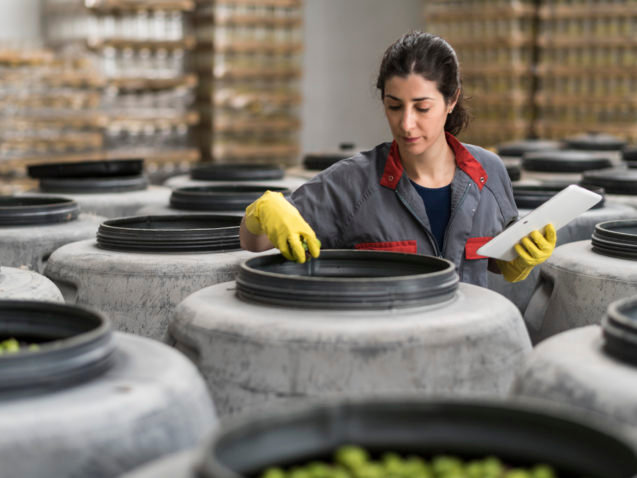Food and drink is Europe’s largest manufacturing sector and our two organisations come together as EU Social Partners to represent the employees (EFFAT) and employers (FoodDrinkEurope) in the industry. Please see below our joint statement in the face of the Covid-19 pandemic.
As recognised EU Social Partners in the food and drink industry, we express our concern over the deepening public health crisis across Europe, and beyond, and our heartfelt sympathy goes out to the families impacted by coronavirus. We are also concerned about the potential for a serious and sustained global economic downturn and the impact this will have on the workforce.
The European food and drink industry relies on the hard work and commitment of more than 4.7 million people across 294,000 businesses, of all sizes, to ensure consumers can access a wide and varied diet.
We are indebted to these workers and their continued dedication to do their jobs during the covid-19 pandemic. Despite the emergency, the food sector does not and will not stop. For this reason, the workforce needs to be supported by public authorities.
We welcome many of the initiatives taken so far by the European Commission, including the proposal to activate the general escape clause of the Stability and Growth Pact (SGP) and the establishment of a Corona Investment Plan. But more needs to be done to provide enhanced health protection for workers and economic support for struggling businesses. We urge the authorities to consider the following interventions:
1: Recognise workers’ essential role
The entire food and drink industry (including finished products, ingredients, packaging and transport) must be regarded as ‘essential’ by all EU Member States, and we appreciate the Commission’s support of this. By extension, the Commission must also encourage Members States to recognise the needs of the industry’s 4.7 million-strong workforce, who cannot stay at home if we are to keep the food chain functioning. In light of the strategic importance of these workers, we call for effective support measures such as child-care and, if necessary, the consideration of state-wage compensation if workers are temporarily suspended from work.
2: Fair access to safety equipment
As food supply is an essential value chain, national governments and the EU institutions should help companies operating in the food and drink sectors in finding personal protective equipment for workers. In this respect, the establishment of centralised purchasing systems should be accelerated to avoid unfair competition
3: Harmonised protocols for workers
Given their essential role to maintain food security in Europe, we urge the Commission to provide EU guidelines to Members States to establish harmonised protocols for food sector workers to continue their work safely. The protection of food workers’ health should be a priority.
4: Support for workers and businesses
Ninety-nine percent of the EU’s food and drink businesses are small and medium-sized enterprises (SMEs). The Horeca (service industry) shutdowns in many EU Member States is having a major impact on those businesses with potential negative repercussions on employment.
We welcome the flexibility around the implementation of the state aid rules and urge the Commission to develop together with Member States comprehensive emergency measures for the food sector, to maintain jobs and to help re-build the economic sustainability of the sector over the long term. Moreover, unused structural funds and other EU funds should be used to support Member States in ensuring financial and income support for workers affected by unemployment or suspension from work, including non-standard workers and workers employed in the subcontracting chains.
We call on national governments to involve social partners in the designing and implementation of national measures. Social dialogue should be strengthened and promoted at each and every level to deal with the consequences of this emergency.
Europe is facing an unprecedented fight against coronavirus that has changed the way we live in our society, the way we interact with our loved ones and the way we work together.
The only way we will be able to overcome this crisis is with more support and solidarity among Member States.








